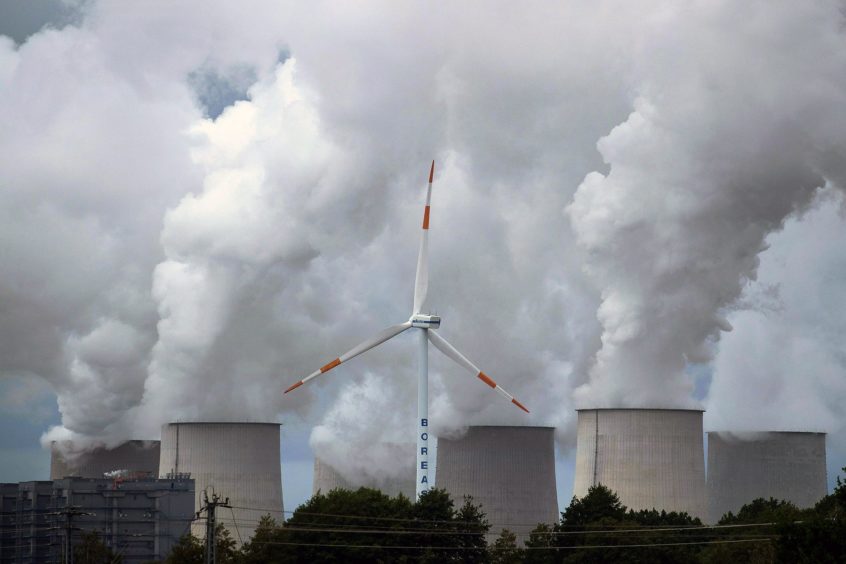
Westminster is rolling out new powers in a bid to severe the link between the price of gas and renewables.
A new temporary “cost-plus revenue limit” is in the pipeline to reduce the impact of wholesale prices on consumers and the taxpayer, capping the amount green energy generators can make.
It comes as part of the UK Government’s energy prices bill, which puts measures to help households, businesses and others with energy costs this winter into law.
On top of enshrining support, it also sets out tactics for reducing inflation and supporting economic growth by limiting the gas prices ability to dictate the cost of electricity.
Under the current market system, the price of power is set by the cost of the last unit of energy needed to meet demand, usually gas.
It means low cost renewable energy is flogged at the same price as costly hydrocarbons, even though it is cheaper to produce.
To address this the government has introduced a new temporary cost-plus revenue limit, the precise mechanisms of which will be subject to consultation, due to be launched shortly.
Ministers have been “working closely with industry on the detail of the proposal”, ahead of it coming into force from the start of 2023.
It aims to ensure consumers pay a fair price for low carbon energy and has the potential to save billions of pounds for British bill payers.
At the same time it will allow generators to cover their costs, and receive an “appropriate revenue”.
Business and energy secretary Jacob Rees-Mogg said: “Businesses and consumers across the UK should pay a fair price for energy. With prices spiralling as a result of Putin’s abhorrent invasion of Ukraine, the Government is taking swift and decisive action.
“We have been working with low-carbon generators to find a solution that will ensure consumers are not paying significantly more for electricity generated from renewables and nuclear.
“That is why we have stepped in today with exceptional powers that will not only ensure vital support reaches households and businesses this winter but will transform the United Kingdom into a nation that offers secure, affordable and fairly-priced home-grown energy for all.”
Plans for a voluntary Contracts for Difference (CfD) process for existing generators, slated for 2023, are also in the offing.
The long-term deals guarantee developers a fixed price for their power.
The energy prices bill, introduced in Parliament today, puts the energy price guarantee, for domestic consumers, and energy bill relief scheme, for businesses and non-domestic properties, into law.
It also include measures to allow the UK Government to deliver comparable schemes in Northern Ireland and legislation that will require landlords and heat network operators to pass benefits through to tenants.
Efforts to support ongoing investment in ;ow-carbon electricity generation from renewables and nuclear have been built-in too.
Chancellor of the Exchequer Kwasi Kwarteng said: “Our actions will mean that energy bills for the typical household will be half what they would have been this winter.
“We are protecting people, holding down inflation and preventing Putin’s energy price hike from causing long term harm to our economy by supporting businesses.”
Recommended for you


 © Shutterstock
© Shutterstock © Photographer: Hollie Adams/Getty
© Photographer: Hollie Adams/Getty